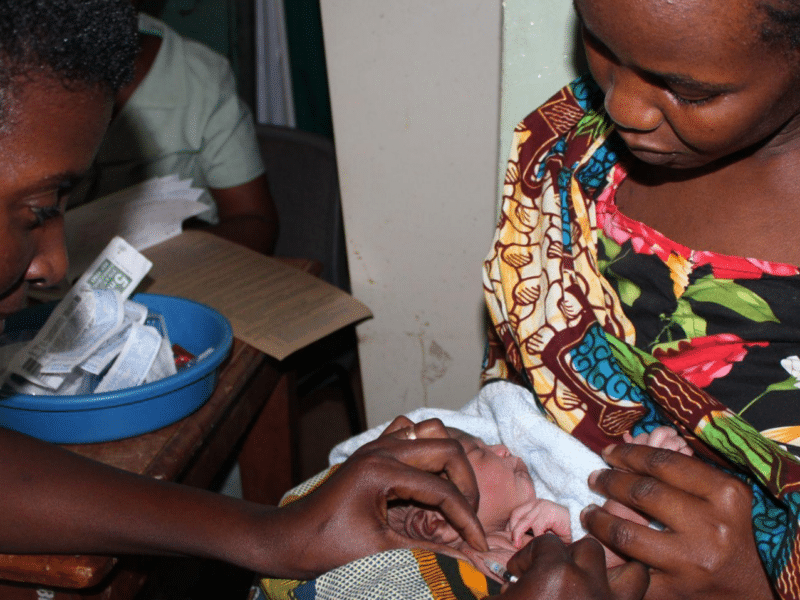As boys mature, research shows they tend to disengage from close relationships with adults and their friends as they begin to adopt masculine social norms such as stoicism, focus on physical strength and avoid demonstrations of vulnerability – all to the detriment of their long-term health.
Preventing loneliness by maintaining high-quality friendships and building social support networks can impact boys’ health for a lifetime. A new technical brief by the Johns Hopkins Center for Communication Programs and other members of the Interagency Gender Working Group’s Male Engagement Task Force suggests several evidence-based ways to promote healthy relationships by developing skills in empathy, interpersonal communication and reserving male-only spaces that promote deep connection.
CCP’s Dominick Shattuck, director of research, monitoring, evaluation and learning for the Breakthrough ACTION project, helped lead the work. He says it would be valuable to add these promising strategies to existing adolescent health programs to improve the health of boys and men by promoting social connection and support to existing youth programming sponsored by USAID and other agencies. People need the kind of closeness with others which allows them to disclose their personal feelings safely and securely.
“Globally, discussions about the health outcomes associated with feelings of loneliness and isolation are abundant,” Shattuck says. “These feelings are present in boys and girls, yet boys are more likely to enact behaviors that intensify their loneliness as they mature. This technical brief describes ways to foster social skills that help to prepare boys for meaningful friendships and to simultaneously build and maintain a social support network they can call on when navigating difficult times in their lives.”
In the literature review conducted by Shattuck and other members of the gender working group, the authors note that as boys age, their friendships commonly become less intimate and more transactional.
“This shift in relationship dynamics often reflects boys’ increasing embodiment of normative masculine traits and behaviors that discourage prosocial behavior and can reduce the quality and longevity of social connection and support necessary to navigate life’s challenges, successes, and transitions,” they write. “Limited social connection and support negatively impacts boys’ and men’s health outcomes over time. More programs and interventions that promote social connection and build the skills associated with healthy, supportive friendships are needed to positively impact health outcomes throughout their lives.”
Some of those programs are outlined in the review. Take empathy. The brief highlights a program called “Roots of Empathy,” which has been used in Canada, Costa Rica, New Zealand and more. As part of the elementary school curriculum, a new mother in the neighborhood visits the classroom with her child every month through the school year and students are coached to recognize and connect with the vulnerability and humanity of the baby.
Among their students, teacher assessments of the curriculum have identified fewer aggressive behaviors and increased prosocial behavior, such as comforting a child who is crying or upset, as a result of the intervention.
To improve interpersonal communications, the researchers cite The Listening Project, which employs specific interviewing techniques to challenge stereotypes and cultivate a sense of curiosity and connection among children. It has been shown to bolster the confidence of young people while laying the groundwork for fostering enduring friendships.
One program the brief cites about the need to establish spaces for men to gather are Men’s Sheds, informal, accessible spaces where older men can gather to do woodworking or other projects, share their thoughts with other men their age and contribute to their communities.
“Sheds bolster social connection and support and contribute to improved health and well-being among participants,” the authors write. “Men develop a sense of self-worth and belonging as they participate in meaningful social and practical activities with other men in their communities.”
The Sheds can also be a place where preventive health services can be discussed and encouraged.
Strong friendships among men aren’t solely for the benefit of men. Shattuck says that women and families also benefit when men develop friendships outside the home.
“We need to be sure we are working with men in a way that doesn’t infringe on women’s autonomy and their rights and their ability to do and access the services they need. And I think this kind of work, in particular, promotes that thinking,” he says.
“If you’re talking about elevating levels of empathy among male friendships, we would like to think this would also transfer to women and produce contexts where they have more autonomy or foster more positive relationships throughout the men’s lives. This means as a friend, husband/partner, parent, colleague, and child.”
Save the date! A webinar to discuss this new resource will be on Tuesday, June 11 at 8 a.m. ET. Register here. This webinar will provide a brief overview of the Interagency Gender Working Group’s Male Engagement Task Force’s latest knowledge product describing literature related to male relationships, emotional intimacy, and masculinity, as well as describe the mental and physical health impact of feelings of isolation and loneliness for men. Additionally, the webinar will provide an opportunity for participants to discuss how empathy, communication and facilitating places for men to convene are integrated into existing programs and identify the next steps necessary to integrate their use. French interpretation will be provided.





